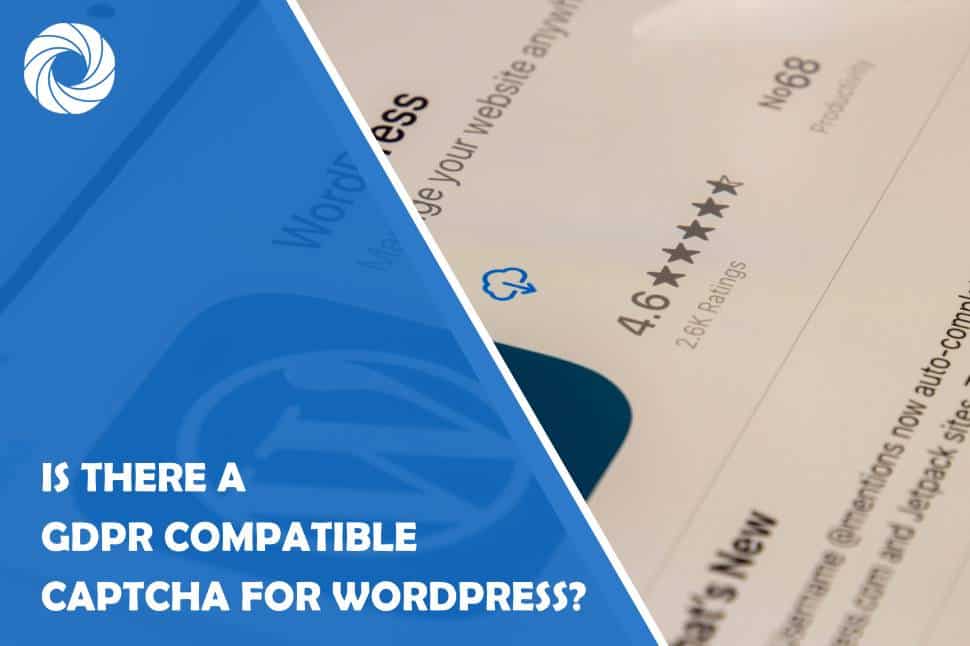In the ever-evolving landscape of data protection and privacy regulations, website owners are constantly seeking ways to ensure compliance while maintaining a seamless user experience. One particular challenge that has arisen in the wake of the General Data Protection Regulation (GDPR) is finding a Captcha solution for WordPress that not only effectively prevents spam and bots but also aligns with GDPR requirements. As website administrators navigate this intricate maze of legal and technical considerations, the question remains: Is there a GDPR-compatible Captcha plugin for WordPress that strikes the delicate balance between security and user privacy?
The quest for such a solution is not merely an academic exercise; it reflects the pressing need for practical tools that respect users' rights to privacy while safeguarding websites from malicious activities. With GDPR's stringent regulations around consent, data processing, and user rights, finding a Captcha plugin that meets these criteria can be pivotal for website owners looking to avoid hefty fines and maintain trust with their audience. Join us as we delve into this complex issue, exploring the challenges faced by WordPress users in achieving GDPR compliance without sacrificing robust security measures.
What is GDPR and why does it matter?
GDPR, or the General Data Protection Regulation, is an EU law that aims to safeguard and empower the data privacy of all EU citizens. The regulation was designed to give individuals more control over their personal data and change how businesses approach data privacy. GDPR is significant because it holds companies accountable for how they handle customer data, requiring them to be transparent about their processes and obtain explicit consent before collecting or processing any personal information. This shift in accountability not only benefits consumers but also encourages businesses to adopt more ethical and responsible data management practices.
Businesses worldwide need to comply with GDPR if they handle the personal data of EU citizens, regardless of their location. Non-compliance can result in severe fines, damaged reputation, and loss of customer trust. As such, understanding GDPR's impact on digital operations is crucial for any organization looking to maintain a solid online presence while respecting user privacy rights. Ultimately, by embracing GDPR compliance as a core value rather than a mere obligation, businesses can build stronger relationships with customers built on trust and transparency while mitigating risks associated with non-compliance.

The use of traditional Captcha in WordPress presents significant challenges for website owners and users alike. These standard Captcha methods, such as distorted text or image identification, often lead to user frustration and have limited effectiveness in preventing spam and abusive bot activities. Not only can traditional Captcha be difficult for users with visual impairments or cognitive disabilities to navigate, but they also contribute to a poor user experience and can deter genuine visitors from interacting with the website.
Moreover, with the implementation of GDPR regulations, the use of traditional Captcha raises additional concerns regarding user privacy and data protection. The collection of personal information through these methods without explicit consent may conflict with GDPR compliance requirements, potentially putting website owners at risk of non-compliance penalties. As a result, there is a growing need for alternative Captcha solutions that prioritize both security and accessibility while adhering to the strict standards set by GDPR.
In response to these challenges, new GDPR-compatible Captcha options are emerging in the WordPress ecosystem. These solutions aim to strike a balance between security measures and user experience while respecting individual privacy rights outlined in GDPR. By adopting these innovative approaches, website owners can enhance their security measures while ensuring compliance with data protection regulations, ultimately creating a safer and more inclusive online environment for their visitors.
Using a plugin for Captcha
Using a plugin for Captcha, such as WP Captcha, is an essential tool for WordPress site owners looking to enhance their website's security and user experience. By implementing a reliable captcha solution, website administrators can effectively prevent spam submissions and unauthorized access attempts. WP Captcha offers various types of captcha challenges, including image-based puzzles and math problems, providing a flexible and customizable approach to protect your site from malicious activities.
Furthermore, with the implementation of the GDPR regulations, it's crucial to ensure that any captcha solution used is compliant with data privacy laws. WP Captcha provides options for GDPR compliance by allowing users to customize data retention settings and clearly communicate usage policies to site visitors. This not only helps in meeting regulatory requirements but also enhances transparency and trust between website owners and users.
In conclusion, utilizing a plugin like WP Captcha not only strengthens the security of your WordPress site but also ensures adherence to data protection regulations such as GDPR. With its customizable options and GDPR compatibility features, WP Captcha stands out as an effective tool for maintaining user safety while safeguarding sensitive information on your website.
Implementing and configuring a GDPR-compliant Captcha in WordPress is paramount in today's digital landscape. With the General Data Protection Regulation (GDPR) maintaining stringent guidelines for user data protection, website owners are under increasing pressure to ensure compliance. Fortunately, there are GDPR-compatible Captcha solutions available for WordPress that can help mitigate the risk of unauthorized data collection and misuse. One such solution is reCAPTCHA, offered by Google. This tool not only provides effective bot detection but also aligns with GDPR principles by allowing users to provide consent before their information is processed. By integrating reCAPTCHA into WordPress forms, website owners can bolster their data protection measures while adhering to privacy regulations.
In essence, choosing a GDPR-compliant Captcha for WordPress is not just about meeting legal requirements but also about demonstrating a commitment to safeguarding user privacy. Focusing on integrating robust and ethical security measures like reCAPTCHA or hCaptcha can enhance user trust and solidify an organization's reputation as a responsible custodian of personal data within the digital realm.
Benefits and drawbacks of using GDPR-compatible Captcha in WordPress
One of the key benefits of using GDPR-compatible Captcha in WordPress is enhanced data protection. By implementing a GDPR-compliant Captcha solution, website owners can ensure that their user data is safeguarded in accordance with the strict regulations outlined by the European Union. This not only builds trust with visitors but also minimizes the risk of potential legal repercussions for non-compliance. However, a drawback to consider is the potential impact on user experience. Some GDPR-compatible Captcha implementations may result in added friction for users, potentially leading to decreased engagement and conversion rates.
On the positive side, using GDPR-compatible Captcha in WordPress can streamline compliance efforts by providing a standardized approach to data protection across various plugins and forms. This ensures consistent adherence to GDPR requirements throughout the website ecosystem. Nevertheless, it's essential to be mindful of accessibility concerns when utilizing these solutions, as some implementations may inadvertently exclude individuals with disabilities from interacting with online forms, presenting a challenge that necessitates careful consideration during implementation.
In conclusion, while GDPR-compatible Captcha offers undeniable advantages in terms of data security and regulatory compliance within WordPress websites, it's crucial for site owners to weigh these benefits against potential drawbacks such as user experience issues and accessibility concerns before integration.
In conclusion, finding the right balance for user verification is crucial for website owners looking to comply with GDPR regulations while still maintaining a positive user experience. Implementing user verification methods such as Captcha for WordPress can help ensure that only legitimate users are accessing your site, thus improving overall security. However, it's important to strike a balance between security and user convenience, as overly aggressive verification processes can turn away potential visitors.
A GDPR-compatible Captcha for WordPress should be easy to use and non-intrusive while effectively preventing bot-generated spam. By prioritizing user-friendly verification tools and constantly evaluating their effectiveness in deterring malicious activity, website owners can find the optimal balance between security and ease of access in line with GDPR requirements. Ultimately, by choosing the right user verification method that respects privacy rights and delivers a smooth user experience, website owners can navigate the complexities of GDPR compliance without compromising on usability.
